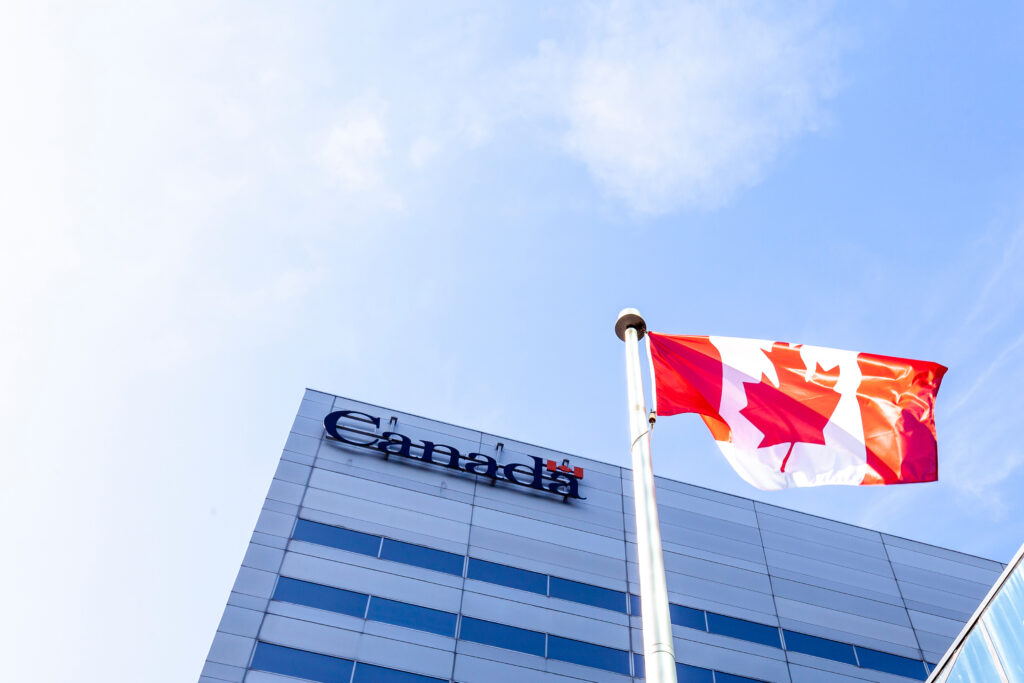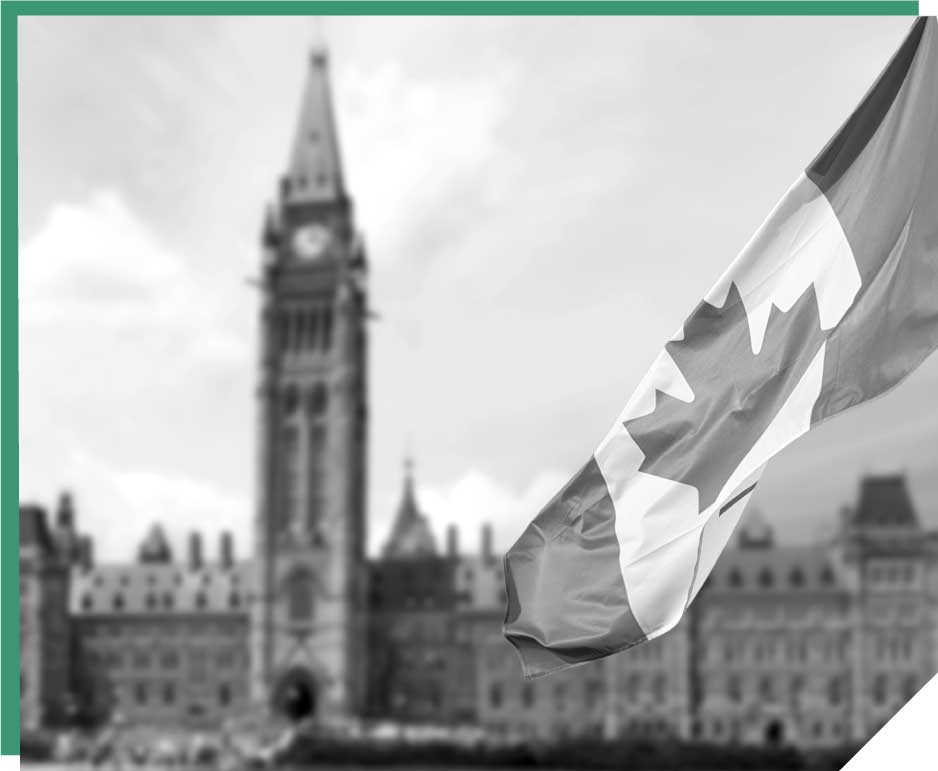

Federal Budget 2022 – Housing Ambitions Funded by Big Finance
On 7 April 2022, Deputy Prime Minister and Federal Finance Minister, Chrystia Freeland, tabled the 2022 Federal Budget. Various proposed tax measures impact both individuals and business, but there was no change to the general corporate tax rate or personal income tax rates.
Canada Recovery Dividend and Additional Tax on Banks and Life Insurers
The main revenue-generating measures of this budget are targeted at banks and life insurer groups:
- a one-time Canada Recovery Dividend is a tax of 15% on 2021 taxable income over $1 billion, payable over five years; and
- a permanent tax increase of 1.5% to 16.5% on taxable income of more than $100 million applying to taxation years after budget day and prorated for a taxation year including budget day.
CORPORATIONS
Corporate income tax rates: no proposed changes.
Taxable Capital of Canadian Controlled Private Corporations (CCPC). Small businesses receive preferential tax treatment through the small business deduction, resulting in a lower Federal corporate income tax rate of 9%, compared to the general Federal corporate income tax of 15%. The lower rate applies to taxable income up to $500,000 per year of qualifying active business income.
The small business deduction can be eliminated by the following:
- Annual Passive income of $150,000 earned within a group of associated companies. The erosion starts at $50,001.
- Taxable capital of a CCPC, the erosion starting at $10 million and currently eliminated at $15 milliion
The budget proposes a more gradual phase out of the small business tax rate, increasing the upper limit of taxable capital to $50 million (from $15 million), allowing more medium-sized CCPCs to benefit from the small business deduction.
This measure would apply to taxation years that begin on or after April 7, 2022.
Intergenerational transfers – the story continues
Bill C-208 received royal assent on June 29, 2021. The bill amended the Income Tax Act (Canada) (ITA) to allow a business owner to sell or transfer their shares in a qualified small business corporation or family farm and fishing corporation to a corporation owned by their adult child or grandchild without adverse tax consequences. Specifically, the amendments contained in Bill C-208 enabled the sale proceeds to be taxed at capital gains rates instead of at higher dividend rates.
There are many gaps in Bill C-208 legislation that Finance intends to remedy. There were no amendments to Bill C-208 in the budget, however, Finance expects to release amendments in the fall, after another consultation period.
Strengthening the General Anti-Avoidance Rule
The general anti-avoidance rule (GAAR) in the ITA is intended to prevent taxpayers from structuring a transaction in an abusive manner to achieve a reduction in taxes. Following up on comments made in the 2021 federal budget regarding the intention to modernize GAAR, Finance announced it intends to release a consultation paper and provide a consultation period on this matter. Draft legislation would then follow by end of 2022.
Substantive Canadian-controlled private corporation (CCPC) – Deferring Tax through the use of Foreign Entities
The budget proposes amendments to the ITA to eliminate the tax-deferral advantage available to CCPCs and their shareholders earning investment income through controlled foreign affiliates
PERSONAL
Personal income tax rates: no proposed changes
Housing Initiatives:
Tax-Free First Home Savings Account (FHSA) The budget proposes the FHSA, giving first-time home buyers the ability to save up to $40,000.
- Contributions would be tax deductible, and withdrawals to purchase a first home would be tax-free. Investment growth inside the FHSA would be tax-free as well.
- To open an FHSA, the accountholder must be a Canadian resident over the age of 18 years. As well, they can’t have lived in a home that they owned either at any time in the year the account is opened or during the preceding four calendar years.
- Since this is a first home savings account, the non-taxable withdrawals must be for a single property during the FHSA holder’s lifetime.
- Once the first non-taxable withdrawal has been made, the FHSA must be closed within a year and another FHSA can’t be opened.
Further details are to come with contributions starting in 2023
Anti-flipping tax – the budget proposes new tax rules so that any person who sells a property they have held for less than 12 months would be subject to full taxation on their profits as business income. The Principal Residence Exemption would also be unavailable under the new rules. Exemptions would apply for Canadians who sell their home due to certain life circumstances. This measure would apply to residential properties sold on or after Jan. 1, 2023.
Restrictions on foreign buyers – the budget proposals would prohibit foreign commercial enterprises and people who are not Canadian citizens or permanent residents from acquiring non-recreational, residential property in Canada for a period of two years.
Housing Construction – the budget proposes the doubling of housing construction over the next decade, making more affordable housing available.
The First-Time Home Buyer’s Tax Credit (HBTC) is proposed to double—to $10,000 effective 1 January 2022. The increased credit would provide up to $1,500 in direct support to first-time home buyers. Spouses or common-law partners can split the value of the credit as long as the combined total doesn’t exceed $1,500 in tax relief. The HBTC eligibility requirements remain the same.
Multigenerational Home Renovation Tax Credit. The budget proposes a new refundable tax credit which will provide up to $7,500 in support for constructing a secondary suite for a senior or an adult with a disability (so they may live with a qualifying relation). Starting in 2023, this refundable credit would allow families to claim 15% of up to $50,000 in eligible renovation and construction costs incurred to construct a secondary suite.
Home Accessibility Tax Credit is a non-refundable tax credit that provides recognition of eligible home renovations for an eligible dwelling of a qualifying individual. The value of the credit is 15% of the lesser of eligible expenses and $10,000. Budget 2022 proposes to increase the annual expense limit of this tax credit to $20,000. This measure would apply to expenses incurred in 2022 and subsequent taxation years.
Minimum tax for high income earners
The Alternative Minimum Tax (AMT), was introduced in 1986 to prevent high-income individuals (including trusts) from paying little or no income tax. It has not been substantially updated since its introduction in 1986. The budget announced the government’s commitment to examine a new minimum tax regime, which will go further towards ensuring that all wealthy Canadians pay their fair share of tax. The government will release details on a proposed approach in the 2022 fall economic and fiscal update.
Medical expense tax credit for surrogacy and other expenses
Budget 2022 proposes to broaden the Medical Expense Tax Credit (METC) definition of patients to recognize surrogate mothers or donors. This would allow medical expenses and certain reimbursements with respect to a surrogate mother or donor to be eligible for the METC. The budget also proposes that fees paid to fertility clinics and donor banks to become a parent be eligible under the METC. The measure would apply to expenses incurred in 2022 and subsequent years.
Strengthening the general anti-avoidance rule
The general anti-avoidance rule (GAAR) in the ITA is intended to prevent taxpayers from structuring a transaction in an abusive manner to achieve a reduction in taxes. The courts have generally held that GAAR doesn’t apply to a transaction that results in an increase in an asset’s tax attributes, but has not otherwise, been used to reduce taxes.
Flow-Through Shares for Oil, Gas, and Coal Activities
Elimination of the flow-through share regime for oil, gas, and coal activities by no longer allowing oil, gas and coal exploration or development expenditures to be renounced to a flow-through share investor. This change would apply to expenditures renounced under flow-through share agreements entered into after March 31, 2023.
Tax measures that were not addressed in the budget
- An increase in the capital gains inclusion rate
- Measures that affect the principal residence exemption
- Measures targeting capital gains planning
- A wealth tax
Previously announced
The budget confirms that the government will proceed with previously announced measures, including legislative proposals relating to the Select Luxury Items Tax. The luxury tax will be imposed on sales of most:
- Vehicles and aircraft valued over $100,000; and
- Vessels valued over $250,000.
Conclusion
A lot more detail will have to follow. The 2022 Federal Budget did not provide legislation for most of the budget proposals.
“Socialism works well until you eventually run out of other people’s money.” – Margaret Thatcher
SHARE
Title here
2024 FEDERAL BUDGET COMMENTARY
On 7 April 2022, Deputy Prime Minister and Federal Finance Minister tabled the 2022 Federal…
2023 FEDERAL BUDGET COMMENTARY
On 7 April 2022, Deputy Prime Minister and Federal Finance Minister tabled the 2022 Federal…
UHT – UNDERUSED HOUSING TAX – Does it affect you?
On 7 April 2022, Deputy Prime Minister and Federal Finance Minister tabled the 2022 Federal…


